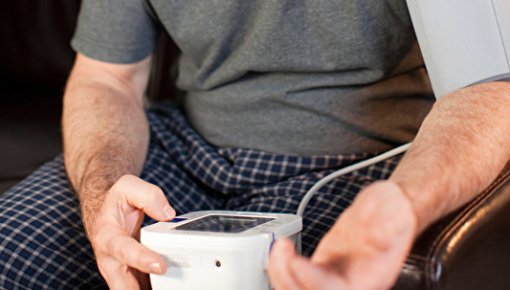Is telemonitoring a good idea for advanced heart failure?

The daily transmission of health data such as blood pressure, ECG values, and body weight to a medical center can have advantages for people with severe heart failure. This type of telemonitoring probably reduces the risk of dying from things like heart attack or sudden cardiac death.
People who have a very weak heart are often short of breath and have difficulty breathing even after slight exertion. This can restrict daily life or make your usual everyday activities impossible. Advanced heart failure can also cause heart rhythm problems and lung infections.
If you have advanced heart failure, it's important to have regular check-ups with your doctor, who can then adjust the treatment as needed.
